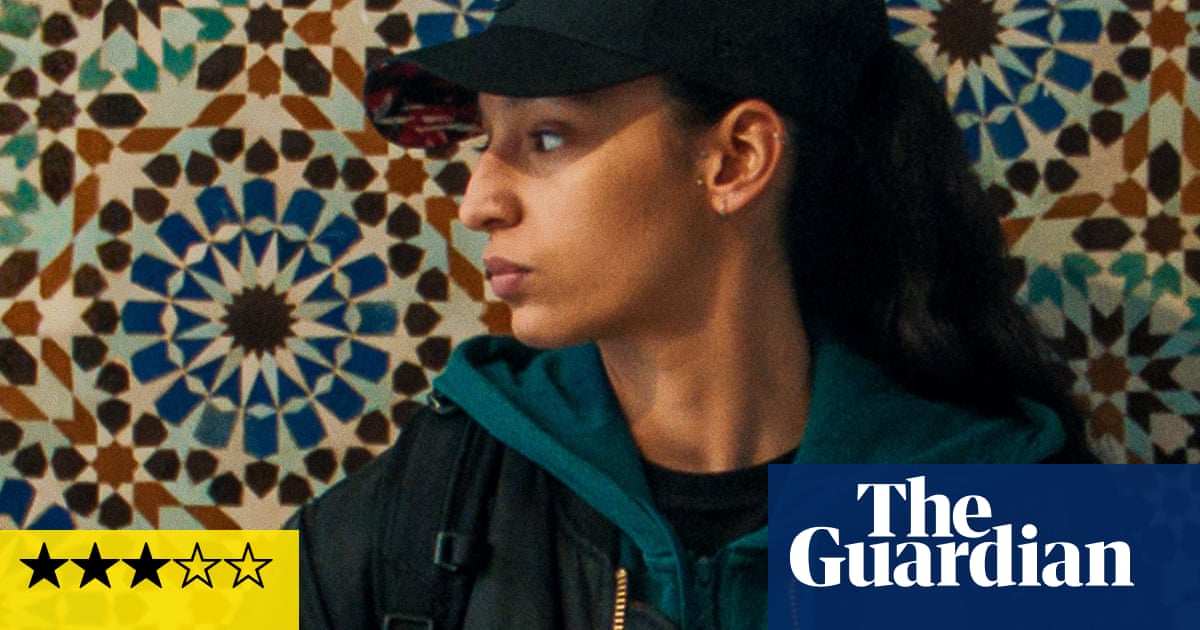Actor turned director Hafsia Herzi presents her first feature in the Cannes competition: a coming-of-age story of queer Muslim identity, with all the painful, irreconcilable imperatives that this implies, complicating the existing insoluble agonies of just getting to be an adult. It is adapted fromLa Petite Dernière, or The Last One, the autofictional novel by Franco-Algerian author Fatima Daas about growing up as the kid sister, the youngest of three girls, in an Algerian family in a Paris suburb with her mum, dad and siblings.
Non-professional newcomer Nadia Melliti plays Fatima, a smart kid battling with asthma who likes books, likes football, likes freestyling, likes running – and likes girls. (This last interest is secret.) As Fatima prepares to leave school and start her first year at university (while living at home, of course) she cultivates a protective deadpan manner and wears a cap: the secular-western camouflage equivalent of a head covering. She has to negotiate her way out of what appears to be an unofficial engagement with a Muslim boy into which she has drifted. His feelings, and perhaps his sense of entitlement, will be hurt. So be it.
Fatima downloads a dating app on her phone and covertly experiments with gay hookups: a louche, somewhat insensitive older woman, then a younger German woman with whom she feels a little more comfortable and finally Ji-Na, the Korean nurse in her asthma clinic (a very good performance from Park Ji-min), the only one with whom she can open up, and soon they have fallen in love. But Ji-Na’s own issues come to the surface, and with them a crisis for Fatima.
It is performed with robustness and honesty, and there is incidentally a wittily presented, real-looking lo-fi dream sequence. Herzi manages the sexuality and intimacy with assurance, and also Fatima’s own complex sense of herself as the good daughter. It’s impossible to forget, incidentally, Herzi’s own amazing acting debut as the spirited daughter in the 2007 filmCouscousby the French-Tunisian director Abdellatif Kechiche, who to the surprise and consternation of many has now drifted into straight softcore erotica. Herzi may well have taken some influence from Kechiche’s Palme d’Or-winning filmBlue Is the Warmest Colourfrom 2013, particularly in the way a sex scene segues into a joyful street demo scene. Of course, that film was criticised for turning a straight male gaze on lesbian sexuality; Herzi can be said to have avoided that, though Kechiche’s film, for all that it is now deeply unfashionable and even discredited, had an extravagance, a passion, a bull-in-a-china-shop craziness that The Little Sister doesn’t, quite.
Melliti’s performance is reserved and even a bit opaque, certainly compared to the excellent Park, who made her own debut in Davy Chou’sReturn to Seouland, indeed, seasoned actors such as Mouna Soualem, playing a raucous party animal drawn to Fatima. This opacity is partly a function of not being a professional actor, but it is also the opacity of real life, the opacity of someone who has long learned to present a calm and undemonstrative face to the world – and there is something affecting in emotion and tears in this context. And finally, Herzi shows us that these crises and confrontations are maybe never going to be entirely solved, but managed and finessed with increasing maturity. It’s an elegant directorial performance from Herzi.
The Little Sister screened at theCannes film festival
